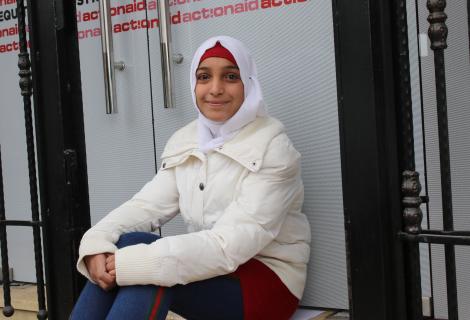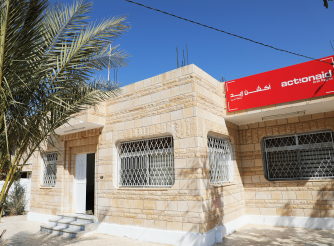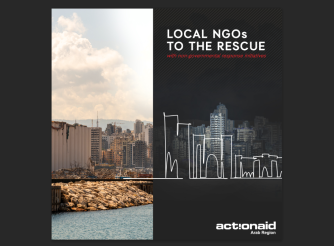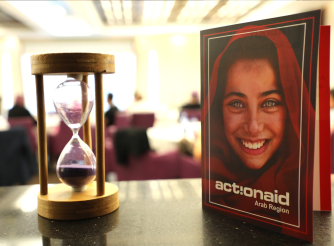Malak’s Ambitions Smile

Malak Al Ali a 15-year-old Syrian girl who fled to Lebanon Bekaa with her family when she was 9 years older, her father decided it is not safe anymore to stay in Syria especially that she and her brothers and sisters dropout of school and their education is on risk.
“It was hard to leave home, school, friends, neighbors but we had to, at least we have some family members in Lebanon”, Malak says. Malak’s father is the only member of the family working all her brother and sisters are in school.
Educational barriers and minimal amount of school resources is major issue facing the Lebanese and Syrian children, Bekaa valley has the highest numbers of out-of-school children, with 70 per cent of the surveyed children aged 6-14 not attending school - increasing to 84 per cent for 15-17-year-olds. (recent assessment by UNHCR).
Tension between host and refugee communities, child labor, early marriage, insufficient school places, and transportation costs; and evidence of poor-quality education such as curriculum difficulties, double shifts, as the root causes of poor education access and quality, and dropouts. (recent assessment by ActionAid)
The 14-year-old Malak was full of ambitions and energy during the 7 days “Leadership Training – Summer School”, “this training taught me a lot, it changed the way I deal with situation in school and home, how to adapt with different situation and adjust them based on my needs”, Malak says. Malak was part of training that was held in ActionAid Arab Region community center in Bekaa – Jeb Jannine targeted in the first cycle 212 students’ males and females from both host and refugee communities age 14-18 years from two different area Balbak and Jeb Jannine. Through the interactive seven days students skills and knowledge are reinforced and they have been able to identify and address issues in their communities related to building social cohesion, never the less to level up their leadership skills.
“positivity is the key, this the first thing I took for granted, to always be positive”, Malak added, the different sessions the students took revolved around leadership, identity, team building and the importance of collaboration within each other. The training was an opportunity for the students to altercatethe role of young men and women in the community and the full understanding of their role as changers, “at the first day of the training it was hard to adapt especially that the students were Syrians and Lebanese but in each day this barrier was broken, and I meet some new friends”, Malak says.
The “leadership Training – Summer School” will target 800 students from both host and refugee communities over two years in two areas Bekaa and Jeb Jannine, the summer school with itsextracurricular activities and topics that focus on time management, leadership, human rights, needs assessment will be the first step to have access to education, social activities and other basic services, providing the opportunity for young refugee to be able to adapt within the host community they are living in and to imagine a future for themselves.



